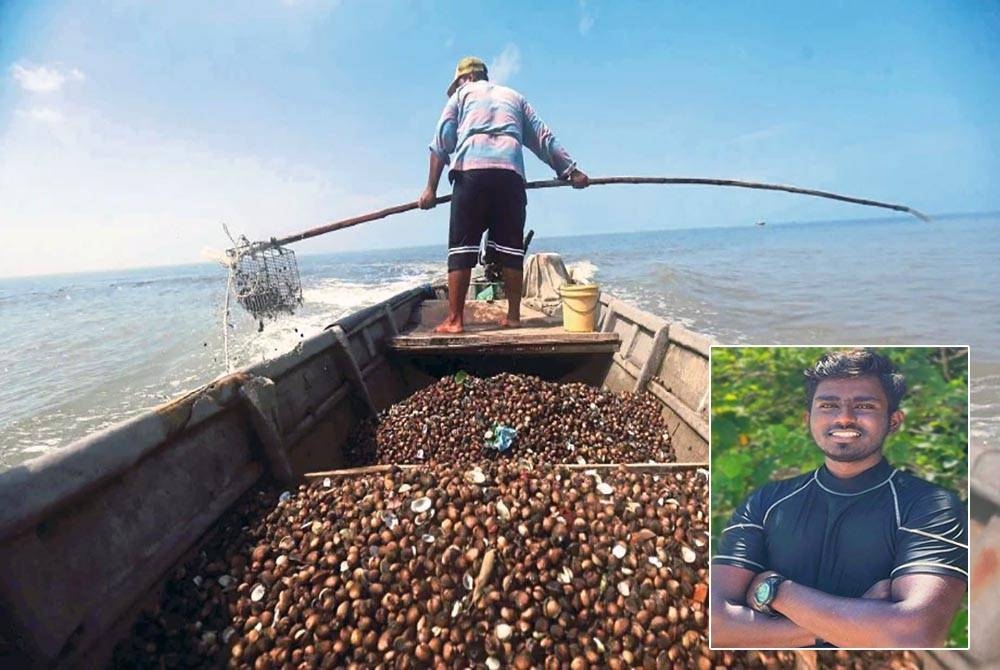Decrease in cockle population a threat to ecosystem
MOHD IZZATUL IZUAN TAHIR NURFARDLINA IZZATI MOKTAR
SHAH ALAM - Stolen cockle seeds and young cockles in large scales would interfere in the stability of the marine ecosystem as a whole and threatens the continuity of the resources in Malaysia.
Project Ocean Hope founder Mogesh Sababathy said the reduction of cockle population will cause the increase of its prey which were planktons.
“Their cockles’ predators would decrease due to insufficient food source.
“Cockles are filter feeders that go to the bottom water. It feeds on two types of planktons namely phytoplankton and zooplankton.
“Through the water filtration process, it aids in reducing the composition of deposits and excessive nutrients in the water, further purifying the water in the area," he told Sinar Ahad.
Mogesh, a PhD student in Molecular Biology and Genetic Engineering at Universiti Putra Malaysia (UPM ) said cockles acted as a biological indicator in an area.
“The presence of cockles in the area causes the water to be clear and ensures marine lives thrive in a safe area,” he said.
“The increase in nutrients cause additional algae to grow and create a green tint in the water.
“The process called eutrophication will cause the area to smell less pleasant and prevent sunlight from penetrating the surface of the water.
“It can also emit toxins that are very dangerous to other marine organisms, affecting everyone including ocean food lovers,” he said.
He explained that cockles had the ability to absorb and store nitrogen and carbon in their tissue and shell decreasing greenhouse gasses and climate change.
Former Fisheries Department director-general Datuk Munir Mohd Nawi once revealed that cockles in Malaysia were threatened with extinction due to various factors.
Other than unregulated harvests, the other factors were changes in temperature, alkalisation or the acidity of waters, low oxygen counts and chemical pollution.
He said a significant change in cockle landings was worrying from 2010 to 2016 with a high drop of 80 per cent.
He said for example, Perak recorded a decrease in cockle landings to 7,000 tonnes in 2016 compared to 70,000 tonnes in 1995.










